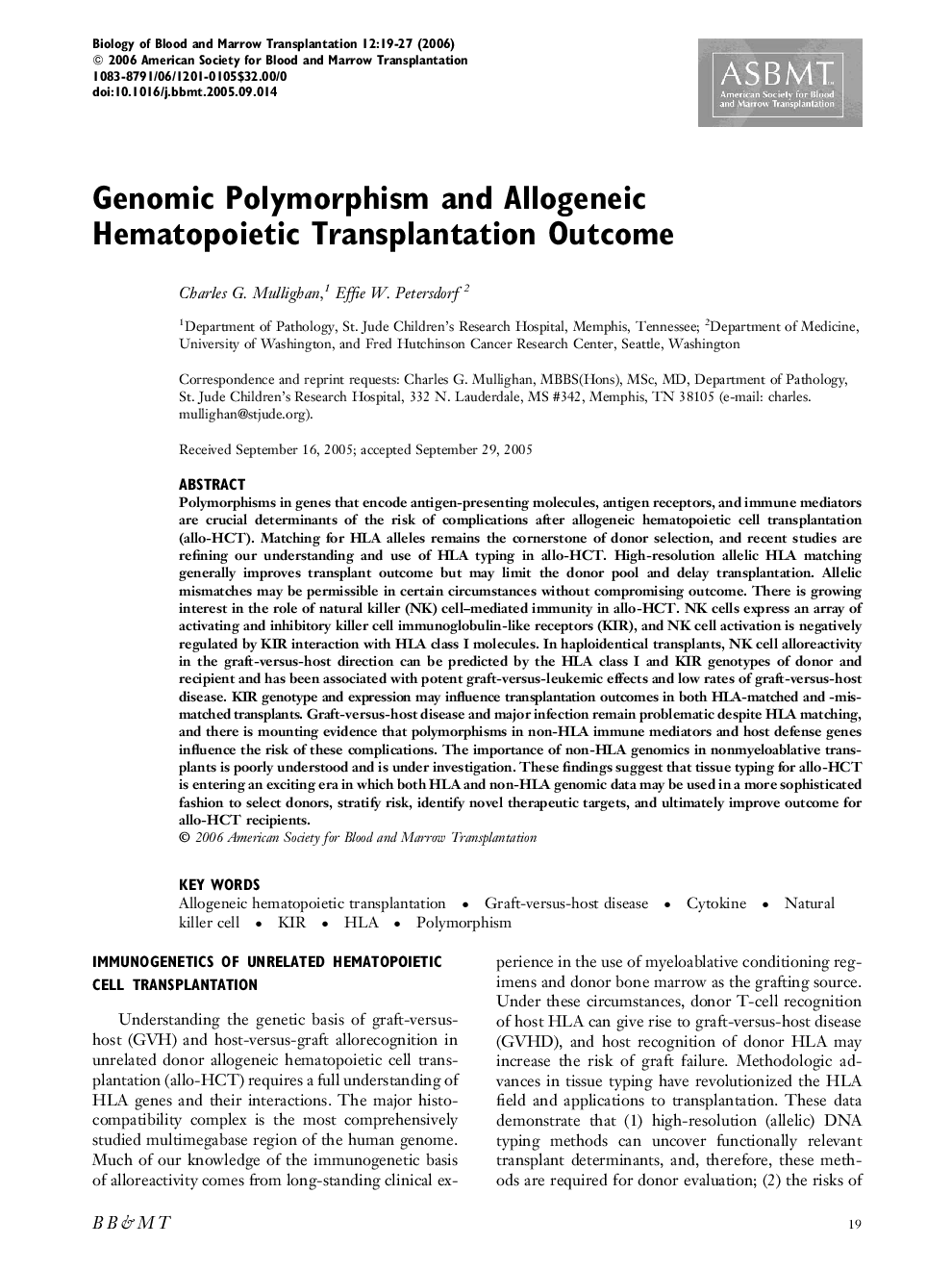| کد مقاله | کد نشریه | سال انتشار | مقاله انگلیسی | نسخه تمام متن |
|---|---|---|---|---|
| 2105212 | 1546399 | 2006 | 9 صفحه PDF | دانلود رایگان |

Polymorphisms in genes that encode antigen-presenting molecules, antigen receptors, and immune mediators are crucial determinants of the risk of complications after allogeneic hematopoietic cell transplantation (allo-HCT). Matching for HLA alleles remains the cornerstone of donor selection, and recent studies are refining our understanding and use of HLA typing in allo-HCT. High-resolution allelic HLA matching generally improves transplant outcome but may limit the donor pool and delay transplantation. Allelic mismatches may be permissible in certain circumstances without compromising outcome. There is growing interest in the role of natural killer (NK) cell–mediated immunity in allo-HCT. NK cells express an array of activating and inhibitory killer cell immunoglobulin-like receptors (KIR), and NK cell activation is negatively regulated by KIR interaction with HLA class I molecules. In haploidentical transplants, NK cell alloreactivity in the graft-versus-host direction can be predicted by the HLA class I and KIR genotypes of donor and recipient and has been associated with potent graft-versus-leukemic effects and low rates of graft-versus-host disease. KIR genotype and expression may influence transplantation outcomes in both HLA-matched and -mismatched transplants. Graft-versus-host disease and major infection remain problematic despite HLA matching, and there is mounting evidence that polymorphisms in non-HLA immune mediators and host defense genes influence the risk of these complications. The importance of non-HLA genomics in nonmyeloablative transplants is poorly understood and is under investigation. These findings suggest that tissue typing for allo-HCT is entering an exciting era in which both HLA and non-HLA genomic data may be used in a more sophisticated fashion to select donors, stratify risk, identify novel therapeutic targets, and ultimately improve outcome for allo-HCT recipients.
Journal: - Volume 12, Issue 1, Supplement 1, January 2006, Pages 19–27